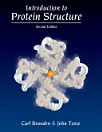Computational Intelligence in Protein-Ligand Interaction Analysis
Bing Wang · Peng Chen · Jun Zhang
Mas 2024 · Academic Press
I-Ebook
310
Amakhasi
family_home
Kufanelekile
info
reportIzilinganiso nezibuyekezo aziqinisekisiwe Funda Kabanzi
Mayelana nale ebook
Computational Intelligence in Protein-Ligand Interaction Analysis presents computational techniques for predicting protein-ligand interactions, recognizing protein interaction sites, and identifying protein drug targets. The book emphasizes novel approaches to protein-ligand interactions, including machine learning and deep learning, presenting a state-of-the-art suite of skills for researchers. The volume represents a resource for scientists, detailing the fundamentals of computational methods, showing how to use computational algorithms to study protein interaction data, and giving scientific explanations for biological data through computational intelligence. Fourteen chapters offer a comprehensive guide to protein interaction data and computational intelligence methods for protein-ligand interactions. - Presents a guide to computational techniques for protein-ligand interaction analysis - Guides researchers in developing advanced computational intelligence methods for the protein-ligand problem - Identifies appropriate computational tools for various problems - Demonstrates the use of advanced techniques such as vector machine, neural networks, and machine learning - Offers the computational, mathematical and statistical skills researchers need
Mayelana nomlobi
Bing Wang is Dean in the School of Electrical & Electronics Information at Anhui University of Technology, in China. He received his PhD in bioinformatics from the University of Technology, China, on protein-protein interaction site prediction. He has held postdoctoral positions in machine learning, chemoinformatics, and biomedical information engineering at the Universities of Louisville and Vanderbilt, in the USA. He has published over 120 papers, is a senior member of IEEE, and serves on the editorial board of several journals.Peng Chen is a Professor in the Institute of Physical Science and Information Technology, and the School of the Internet, at Anhui University, China. He received his PhD from the University of Science and Technology of China (USTC). He has held international roles in Hong Kong, the USA, and Saudi Arabia. He was previously Associate Professor at the Hefei Institute of Intelligent Machines, with the Chinese Academy of Sciences. His research interests include machine learning, and data mining, and he has published over 100 papers.Jun Zhang is a Professor at Anhui University, China, and is an expert in the field of computational intelligence.
Nikeza le ebook isilinganiso
Sitshele ukuthi ucabangani.
Ulwazi lokufunda
Amasmathifoni namathebulethi
Faka uhlelo lokusebenza lwe-Google Play Amabhuku lwe-Android ne-iPad/iPhone. Livunyelaniswa ngokuzenzakalela ne-akhawunti yakho liphinde likuvumele ukuthi ufunde uxhunywe ku-inthanethi noma ungaxhunyiwe noma ngabe ukuphi.
Amakhompyutha aphathekayo namakhompyutha
Ungalalela ama-audiobook athengwe ku-Google Play usebenzisa isiphequluli sewebhu sekhompuyutha yakho.
Ama-eReaders namanye amadivayisi
Ukuze ufunde kumadivayisi e-e-ink afana ne-Kobo eReaders, uzodinga ukudawuniloda ifayela futhi ulidlulisele kudivayisi yakho. Landela imiyalelo Yesikhungo Sosizo eningiliziwe ukuze udlulise amafayela kuma-eReader asekelwayo.






